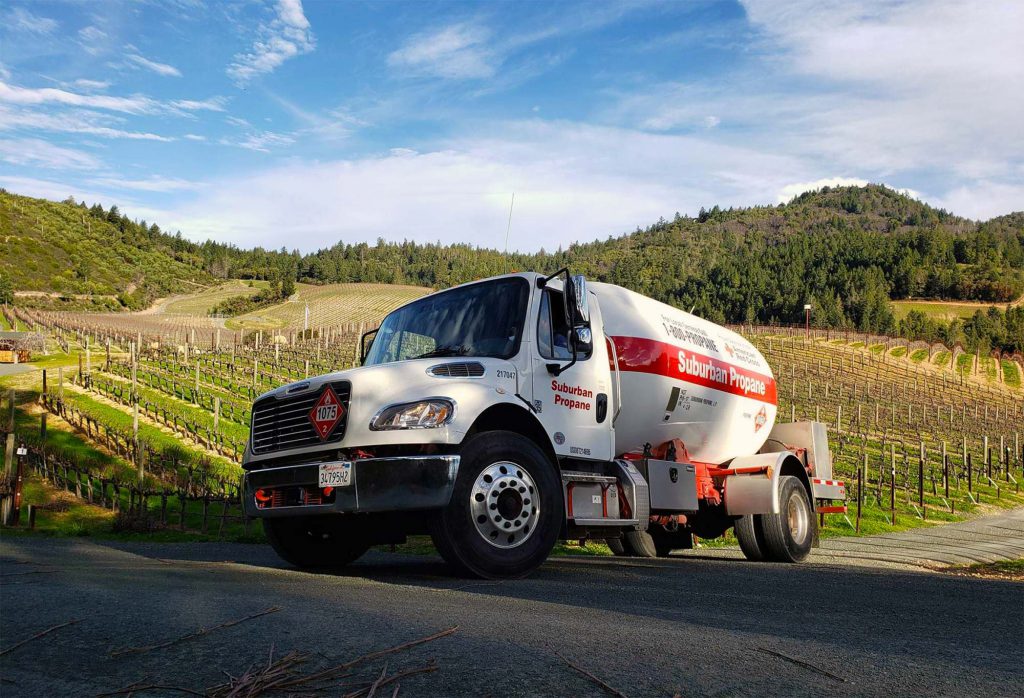The Economic Benefits of Switching to Propane

- In San Diego, switching from an electric water heater to a propane condensing tankless unit saves $692 a year in energy costs.
- In Duluth, Minnesota, choosing a propane furnace and an A/C unit instead of a heat pump can save $2,500 upfront and $447 annually.
- A mixed-fuel propane home in Chicago will have roughly 6 percent lower CO2 equivalent emissions as a similar electric home, both with Energy Star rated equipment.
The cost and emissions savings estimates aren’t from a crystal ball but from the Energy Planning Analysis Tool (EPAT), an online calculator developed by the Gas Technology Institute (GTI). The tool was originally developed for analysts and policymakers to gain a better understanding of the economic and environmental impact of energy choices. But the powerful data the tool produces can be used by builders and remodelers to demonstrate that mixed-fuel homes can be both cost-effective and environmentally friendly.
The tool was originally developed in 2007 as a way to better understand the total amount of energy used by homes with different energy sources — a concept known as source energy. Measuring energy use in this way captures the upstream energy used to extract and process fuel, as well as any losses in transmitting that energy. More recently, the tool’s developers have focused more heavily on the emissions and economic impact of fuel choices, says Erin Bonetti, who manages the tool as principal engineer at GTI.
“Understanding the cost impact for the consumer of the decisions that are being made is really important,” she says. “Depending on the climate, for many folks, planning for mixed-fuel end uses can have significant operating and installation cost savings over alternatives.”
Propane vs. electric calculator
The Duluth calculation is an example of a common decision a builder might face. The tool uses both publicly available data and the GTI’s own analysis for equipment costs, energy prices, and source energy and emissions factors to produce a comprehensive and customizable report that allows users to see the estimated savings from choosing a propane furnace.
A sample single-family home in Duluth, Minnesota, that uses a propane furnace over a heat pump would reduce electrical costs by $2,397 with only $1,950 in added propane costs, for an estimated $447 annual savings.
“The tool demonstrates, in almost all parts of the country, a cost savings for using gas for those energy-dense space-heating and water-heating loads,” says Bryan Cordill, director of residential and commercial business development for the Propane Education & Research Council (PERC). “So, the builder can demonstrate that the mixed-fuel home is cost-effective and a greener, or lower-emissions, home.”
Once their buyers are on board with the benefits of propane, the builder can sell many more options that run on propane, such as fireplaces, gas cooking, standby generators, and outdoor living amenities. “Studies have shown the higher sales price for that all-gas home than the comparable all-electric model because of those features and comforts,” Cordill says.
Comparing energy sources in new construction
GTI has continually added features to EPAT over time, with the latest addition coming this past July 2021. The new feature uses recent equipment installation cost research from the National Association of Home Builders and National Renewable Energy Laboratory to allow EPAT users to calculate upfront cost savings and simple paybacks for new construction in addition to retrofits. The feature makes the tool even more useful to builders because they can share total cost of ownership figures with their clients.
At the end of 2020, electric grid projections from the EIA’s Annual Energy Outlook were added to the tool, enabling users to look at the costs, emissions and energy of a home out through 2050. This includes features to look at the impact of replacing equipment with more efficient alternatives over the life of the home. This is an important feature as the grid changes, especially showing the important role that direct fuel use can continue to play in many parts of the country over the next decades.
Another recent addition is a solar photovoltaic module that allows users to see how the addition of solar PV panels would affect their energy prices. For builders interested in constructing to zero net energy or zero energy ready standards, the tool can help provide an estimate of what it would take to offset their emissions or energy usage with renewables. It also includes functions that allow users to review the economic impact and adjust depending on whether their utility offers net metering or feed-in tariffs.
Overall, the tool offers a compelling way for construction professionals to understand the true financial and environmental impacts of their energy choices. There is one important factor the tool is missing: resilience. Having multiple energy-delivery systems can help homes better withstand power outages and disruptive events, making it an important factor when builders and their clients decide about energy — and one that’s difficult to quantify.
Source courtesy of PERC (Propane Education and Research Council)
Share this story, choose your platform:
Related Posts
Peace of mind
with dependable
fuel supply, when
you need it

COMMUNITY
700+
Locations providing exceptional service to local communities across 42 states
EXPERIENCE
95+
Years serving our customers and their communities. Customer satisfaction since 1928
CUSTOMER SERVICE
3,300+
Dedicated employees ready to assist you with quality service for all your fuel needs
RELIABILITY
24/7/365
We are here for you with customer service representatives standing by to take your call
Please call us 24/7/365 at 1-800-PROPANE



